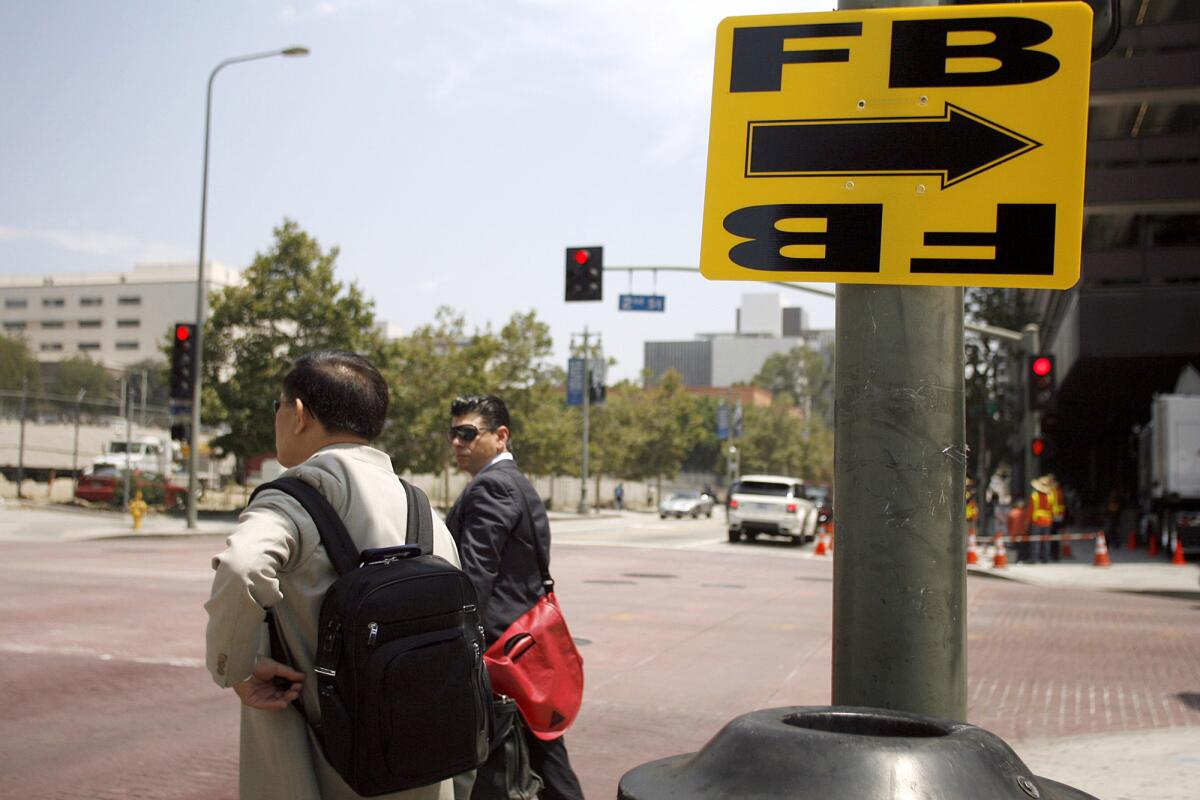MPAA blasts USC over film tax credit report

The lobbying arm for the major Hollywood studios is taking aim at USC over a report that casts doubt on the effectiveness of film tax credits.
The Motion Picture Assn. of America, whose members have benefited from tax breaks available across the country, fired back at a recent USC report that concluded the credits offer little bang for the buck.
For the record:
1:56 a.m. Nov. 16, 2024An earlier version of this post incorrectly referred to the agency whose data was used in the USC study. The research relied on data from the Bureau of Economic Analysis.
“It is troubling and without excuse that such a false and misleading study, without statistical and intellectual foundation, would be recklessly promoted by an otherwise respected educational institution such as USC,” Vans Stevenson, MPAA senior vice president for state government affairs, said in a statement.
The disputed USC study, titled “Lights, Camera, but No Action?” was published in an academic journal in July and reviewed the effects of tax credits nationwide.
Led by Michael Thom, an assistant professor of public policy at USC, the study analyzed employment levels and wages within the motion picture industry in the more than 40 states where film tax incentives have been implemented.
It concluded that states offering incentives, often to entice productions away from film hubs like California and New York, saw little change to long-term employment growth, while short-term benefits eventually burn up.
In 18 states that implemented transferable tax credits — in which tax credits can be sold or brokered to another company that has tax liability in the given state — employment in the film and TV industry increased by less than 1% per year and had no significant impact on wages, according to the study.
The 26 states with refundable tax credits — in which refunds for qualified portions of the money spent in the state are issued back to the production — did not see employment gains, but they did yield positive short-term wage gains.
“Results suggested that most of the incentives included under these programs had little to no sustained impact on employment or wage growth,” the study concludes.
But the MPAA challenged the methodology of the USC analysis, saying the study uses overly broad, aggregated data that paint an imprecise and inaccurate picture of employment trends in film and TV production. The data, for example, counts movie theater and sound recording industry jobs and wages.
“A ticket taker at the local cinema or an engineer at a recording studio should not be affected by film production incentives,” wrote Julia Jenks, MPAA’s vice president of worldwide research in a blog post. “Their inclusion in the study adds noise that dilutes and biases the results of the model.”
Among other criticisms, the MPAA contends the study treats all state film production incentive programs the same and ignores how different sized incentive programs may have more or less impact.
Thom’s research relied on broad-based categories used by the Bureau of Economic Analysis to track entertainment employment. The data include a variety of occupations, including some that have no direct relationship to film and TV production, such as movie projectionists and recording engineers. But the data also include positions such as actors, writers and camera operators that are directly tied to film and TV production.
Thom defended his research, saying, “that’s the best objective data we have from the federal government that’s measured consistently across the states.”
He said the MPAA’s outrage to the study was not surprising.
“When a special interest group like the MPAA, one which represents a multibillion-dollar industry, is confronted with a chorus of studies that question the wisdom of taxpayer subsidies, they do what any political group does: try to discredit the messenger,” he said.
The report is the latest among several independent studies that have questioned the long-term economic benefits of film tax credits. Nonetheless, the programs have been effective at luring production out of California, prompting state lawmakers in 2014 to triple the amount of tax breaks available to film and TV producers. California’s expanded incentives, which total $330 million annually, have been credited with helping to spark a rebound in L.A.’s production economy.
The most-read Entertainment stories this hour »
Twitter: @villarrealy
More to Read
From the Oscars to the Emmys.
Get the Envelope newsletter for exclusive awards season coverage, behind-the-scenes stories from the Envelope podcast and columnist Glenn Whipp’s must-read analysis.
You may occasionally receive promotional content from the Los Angeles Times.







